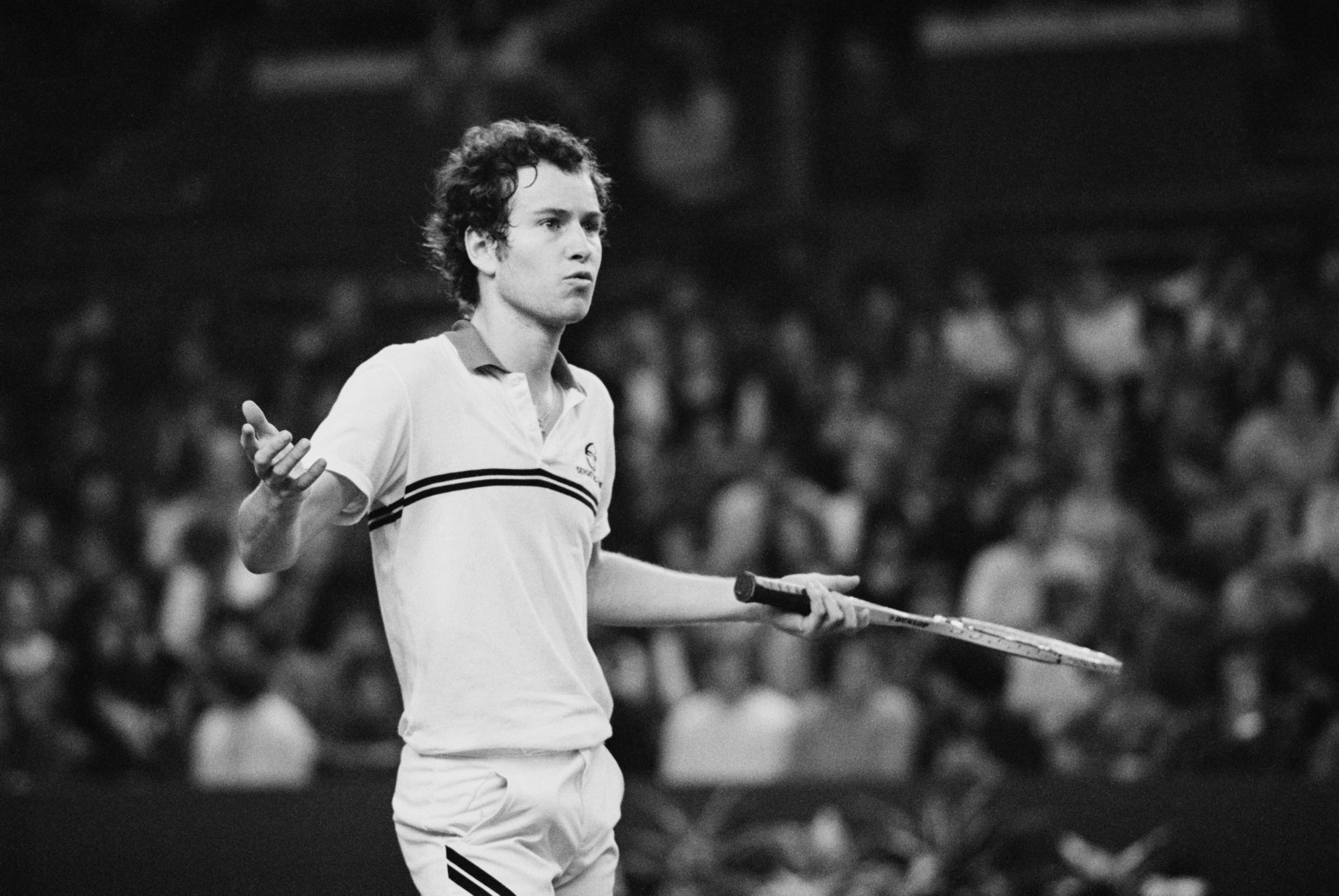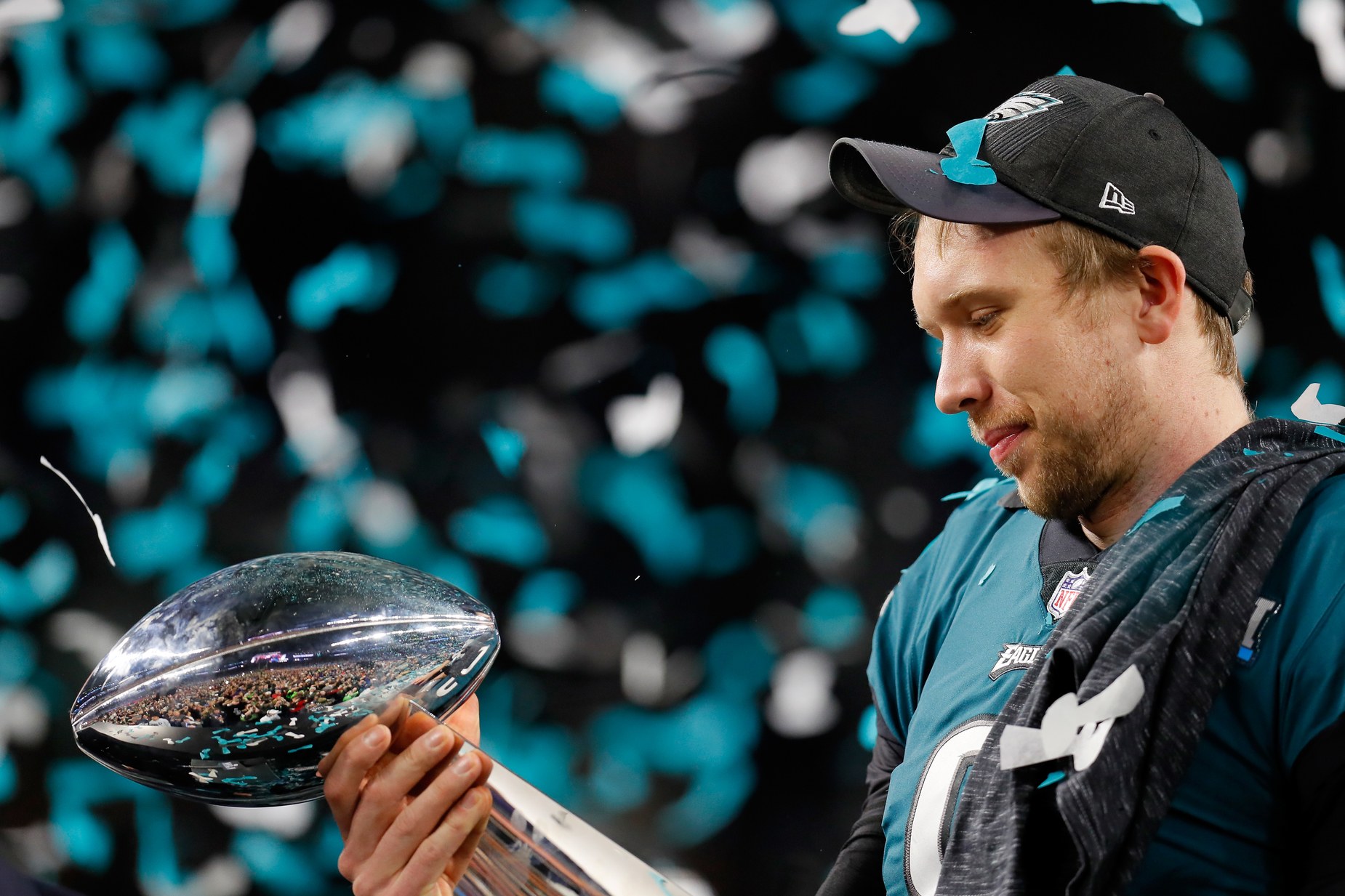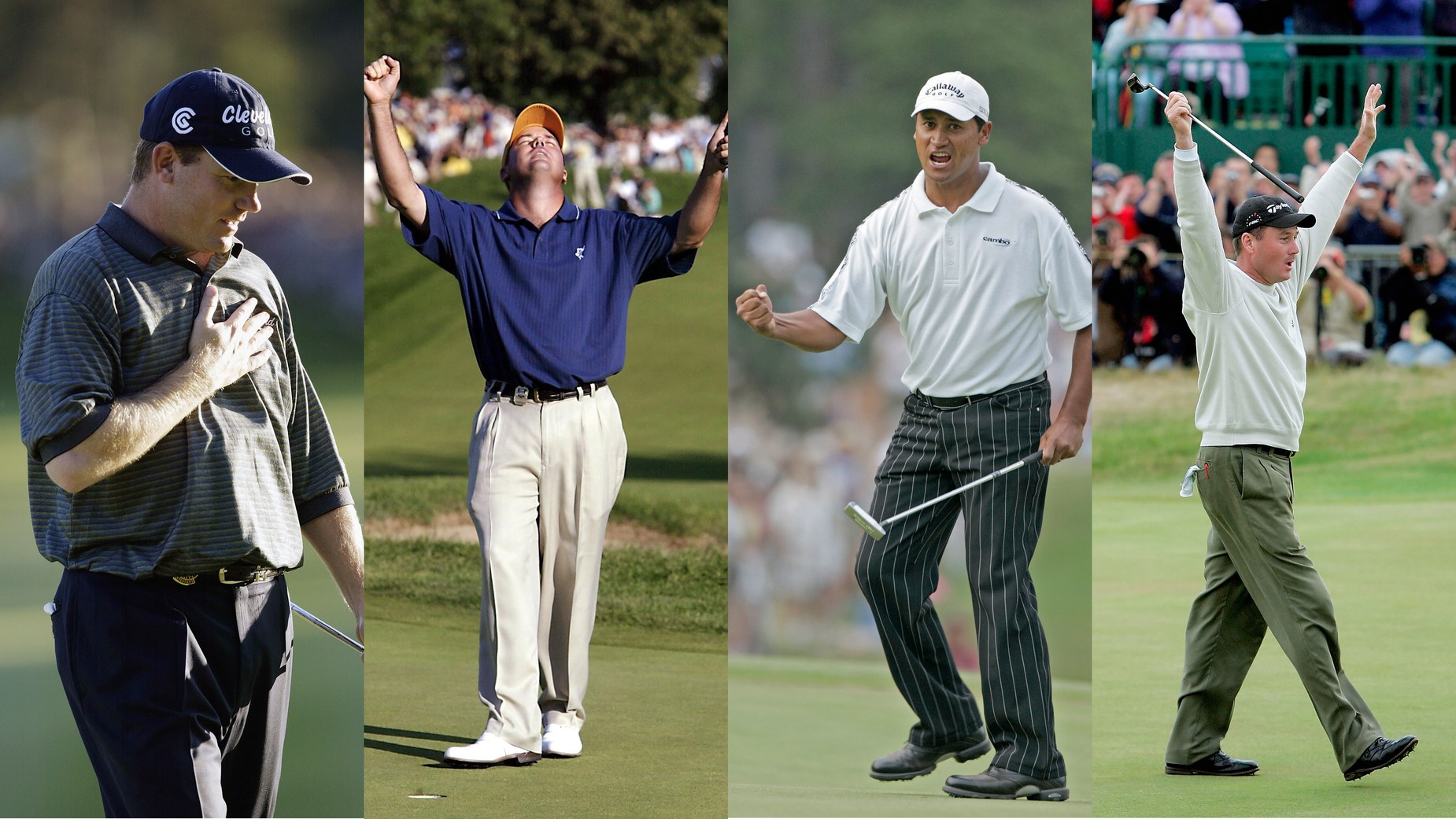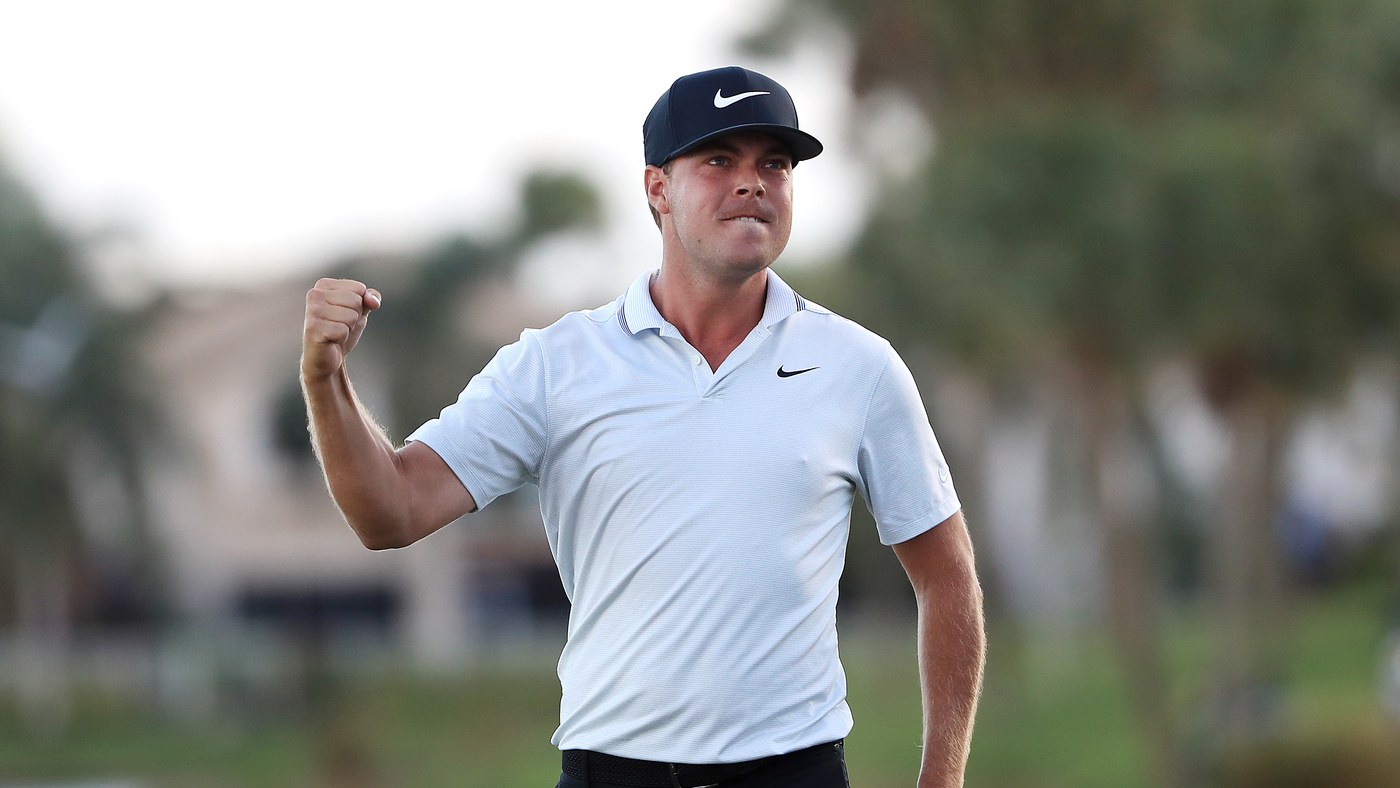In Keith Mitchell, another example of how golf sets itself apart from other sports
By John Feinstein
In 1981, John McEnroe, the defending champion and No. 1 seed, opened the U.S. Open tennis tournament against Juan Nunez, a 24-year-old Chilean, who had to play his way through three qualifying matches to get into the main draw.
With threatening clouds scudding overheard, Nunez played the match of his life—for one set. He took McEnroe to 6-all, then won the tiebreaker to win the set, 7-6.
The reaction in Louis Armstrong Stadium was thunderous. Almost everyone in the crowd was on their feet, cheering for Nunez. McEnroe shook his head in disgust, then won the next three sets, 6-3, 6-1, 6-2. As always, he was blunt about what he was thinking as he waited out the Nunez ovation after the first set.
“None of those people even heard of the guy before the match started,” he said. “Then, he wins one set and they’re cheering like he’s a member of their family.” He smiled. “Did they really think a guy ranked 193d in the world was going to beat me?”

McCarthy
Upsets like the one that McEnroe nearly endured in the 1981 U.S. Open are commonplace in golf.
No, most of them didn’t. Because in tennis, guys ranked 193d in the world don’t beat guys ranked No. 1 in the world. But in golf, it happens.
Sunday’s Honda Classic was yet another example. NBC and most in attendance got exactly what they wanted: three-time major champion Brooks Koepka and hyper-popular Rickie Fowler—both of whom live within 10 minutes of PGA National Resort and Spa—making back nine charges to get to eight-under-par and tie for the clubhouse lead.
But a couple of groups back, someone named Keith Mitchell wasn’t going away. Mitchell came into the tournament ranked 162nd in the world, his best finish on tour this season, a T-14 at the CJ Cup at Nine Bridges in the fall—won by Koepka.
Koepka’s biggest win as a pro? You pick from the three majors he’s won the last two years. Fowler has been criticized by some for only winning five times on tour. His biggest win was the Players Championship in 2015. Mitchell’s only victory as a pro had come in a mini-tour event.
And yet, there was Mitchell, having birdied three of the previous six holes to match Fowler and Koepka at eight-under, standing over a 16-foot birdie putt on the 18th green with a chance to win. And, there was Mitchell, draining the putt for the victory.
How long had it been since there had been such an unlikely victory on the PGA Tour? You have to all the way back to…January—six weeks ago when Adam Long, then ranked 417th in the world, stared down Phil Mickelson for 18 holes on Sunday and drained a birdie putt similar to Mitchell’s to win the Desert Classic.
The 54-hole leader at the Honda was Wyndham Clark, a tour rookie who squeezed onto the big tour this year by finishing 25th on the Web.com Tour last year—grabbing the last tour spot available. Clark shot a two-over-par 72 to finish seventh.
Vijay Singh, who turned 56 last month, also had a chance to win, until his tee shot found the water at 17 on the tournament’s 71st hole. A Singh victory would have been an amazing story, too, but in a different way. He hasn’t won on tour since 2008 and would have been the oldest man—by almost four years—to win on tour. Singh, though, is a Hall of Famer with 34 tour victories, three of them majors. He’s not Juan Nunez by any stretch.
Upsets happen in all sports, but they happen with far more frequency in golf. The greatest sports upset of my lifetime was the U.S. Olympic hockey team’s shocking 4-3 win over the seemingly omnipotent Soviets in the 1980 Olympics. That was a once-in-a-lifetime event, so remarkable that two movies—one good, one bad—were made about it.
The Boston Red Sox World Series victory in 2004 was celebrated across the sports world, not because the Red Sox weren’t an excellent team, but because they came from 3-0 down in the American League Championship Series to take down the hated Yankees and then ended an 86-year World Series drought by sweeping the St. Louis Cardinals. How often have teams come from 3-0 down in postseason baseball series to win? The Red Sox are the list.
The NFL’s greatest upset was Super Bowl III, when the New York Jets—a 17-to-19-point underdog, depending on which history book you read—beat the Baltimore Colts, 16-7. No one knew how good the Jets were because the NFL and AFL hadn’t merged yet and the assumption, based on the first two Super Bowls, was that an AFL team couldn’t compete with the NFL’s best.

Kevin C. Cox
Two years ago, few people gave the Philadelphia Eagles a chance in the Super Bowl against the New England Patriots, but, with backup quarterback Nick Foles, starring in a made-for-Disney performance, the Eagles won. People forgot they were 15-3 prior to the game, not exactly the 162nd best—or, for that matter 417th best—team in football.
A year ago, the University of Maryland-Baltimore County became the first 16th seed to win an NCAA Tournament basketball game, when it beat top-seeded Virginia. It only took 136 games for a 16th-seed to beat a one-seed. It may take another 136 before it happens again.
But golf history is littered with stories even more surprising and dramatic than Mitchell’s and Long’s. Frances Ouimet comes to mind and, no, I didn’t cover the 1913 U.S. Open, though I suspect Dan Jenkins did. Jack Fleck over Ben Hogan in 1955 at Olympic is another example.
Fast forward to 2003 when Ben Curtis, a PGA Tour rookie ranked 396th in the world, won the Open Championship, outdueling Tiger Woods, Vijay Singh, Davis Love III and Thomas Bjorn down the stretch. A month later, Shaun Micheel—who had never won before on the PGA Tour and would never win again—hit one of the great shots in golf history on the 18th hole at Oak Hill (a 7-iron to a foot) to clinch the PGA Championship.
A year after that, Todd Hamilton beat Ernie Els in a playoff in the Open Championship. Hamilton, however, had won 11 times in Japan and had won the Honda Classic—how about that?—earlier in the year. But, after that victory in Scotland, he never won again.

Getty Images (4)
Golf has enjoyed occasional unknown winners in majors.
After his winning putt on Sunday, Mitchell, who is 27, noted that even though he’s not that much younger than Fowler (30) and Koepka (28) he’d been watching them, “for years,” while he was grinding on mini-tours and then the Web.com Tour.
“Everyone has to win their first tournament somewhere,” Mitchell said. “This was mine.”
Actually, that’s not quite true. Many players spend years on tour and never win a tournament. Many others never reach the tour. That’s why Paul Azinger was completely correct when he said, “this would be a life-changing moment for him,” as Mitchell stood over his final putt on 18.
A win on tour makes you a PGA Tour member forever. It means you have a job for at least two years and (unless it is a tournament played opposite a WGC event) means you are in the Masters.
Mitchell was asked how many majors he has played in. He smiled and said, “Zero.” Then he added, “well, actually half-a-major. I played in the Players last year. That counts as half-a-major doesn’t it?”
No, it doesn’t, but that doesn’t matter.
What matters is that Mitchell has a lot more than the tangible rewards (including the first prize of $1,224,000) in the wake of his victory. He has the memory of making that putt on 18 to win and, in the process, defeat two very famous players.
It was certainly a memorable finish. But one more likely to occur in golf than in any other sport.









